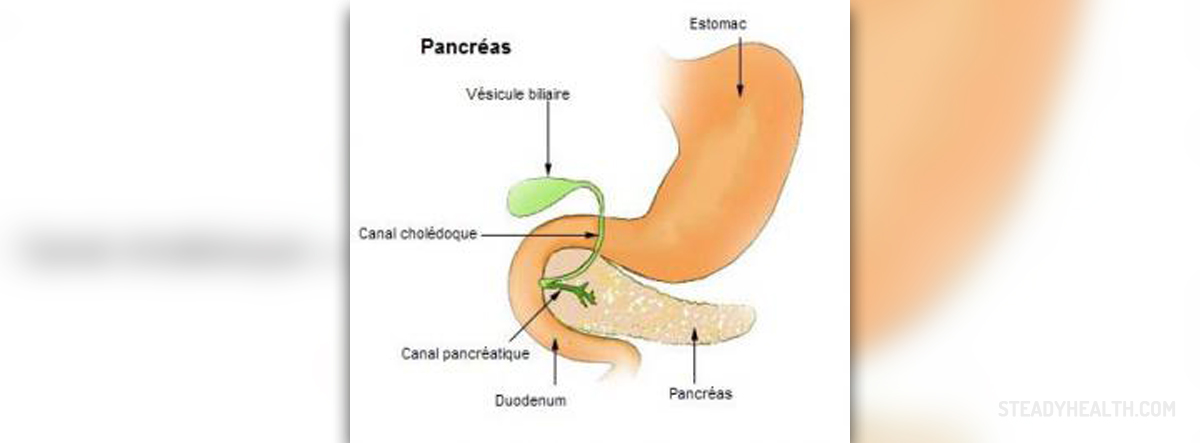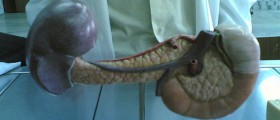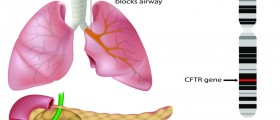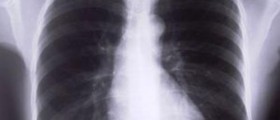
The pancreas is a soft and elongated gland located in the back part of the upper abdomen, right behind the stomach. The gland is anatomically divided into the head and the body. In some cases the pancreas can get inflamed. This inflammation of the pancreas is medically known as pancreatitis. In the acute inflammation of the pancreas the person may develop certain symptoms and signs and there is a chance for serious and potentially life-threatening complications. On the other side, chronic pancreatitis is milder form of the disease. However, in chronic pancreatitis the damage slowly affects the actual function of the gland and the person starts to suffer from many problems due to insufficient production of many pancreatic substances (hormones and enzymes).
Causes of Chronic Pancreatitis
Chronic pancreatitis develops due to repeated attacks of acute pancreatitis or occurs due to other injuries to the pancreas. Alcohol consumption is definitely one of the leading causes of chronic pancreatitis. The scientists have confirmed the direct connection between the amount of alcohol consumed and the risk for chronic pancreatitis. Apart from the previously mentioned, chronic pancreatitis is associated with high levels of calcium in the blood, certain anatomical abnormalities that are present at birth, cystic fibrosis, hypertriglyceridemia, intake of certain medications and, in some cases, if the actual cause simply cannot be identified, a person is considered to be suffering from idiopathic pancreatitis.
Clinical Characteristics of Chronic Pancreatitis
Symptoms and signs of chronic pancreatitis vary a lot.
Majority of patients suffering from chronic pancreatitis commonly complain about pain. The pain varies in intensity and may be mild or excruciating. The pain can linger for many days and tends to aggravate during night. Pain associated with chronic pancreatitis is described as gnawing, stabbing, aching or burning. In many people the pain is induced by consumption of fatty foods.
Chronic inflammation of the pancreas leads to serious damage to the pancreatic tissue. This eventually results in diabetes. The scarring affects the cells responsible for production of pancreatic enzymes and hormones. Such patients commonly develop insulin dependent diabetes.
Another characteristic of chronic pancreatitis is diarrhea. Diarrhea occurs due to insufficient production of pancreatic enzymes. If there is not enough enzymes, the food (particularly food rich in fats) simply cannot be digested and absorbed. The indigested fat traps the water from the feces and results in pale, bulky, greasy stools. Inadequate digestion and absorption of nutrients is also responsible for weight loss. Troubles with digestion also lead to inappropriate absorption of vitamins and minerals and subsequent vitamin and/or mineral deficiency.
And finally, some patients suffering from chronic pancreatitis may develop jaundice.

















Your thoughts on this
Loading...